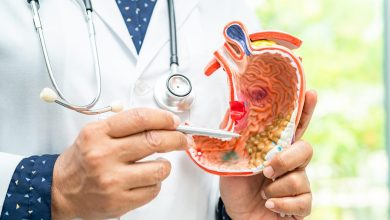
When it comes to women’s health, probiotics are becoming increasingly important. More and more individuals are turning to probiotic pills to keep their gut flora in check since the number of helpful bacteria in the gut continuously shifts due to stress, food, and other lifestyle variables. It is especially true for women since their bodies have unique needs that must be addressed with proper nutrition, including probiotics. A woman’s gut flora, inflammation, and immunity may benefit from probiotic pills. Some of these advantages are discussed in length below:
1. Improving digestive health
Research reveals that women’s probiotics can boost digestive health by alleviating digestive ailments like constipation, gas, diarrhea, and bloating. Regarding women’s health, it’s essential to take probiotics that include types of bacteria that have proven to have positive effects. Probiotic bacteria and yeasts such as Saccharomyces boulardii and Bifidobacterium lactis may also be present. Probiotic supplements have improved digestive health by re-establishing a healthy balance of friendly bacteria in the digestive tract. Further, some research suggests that probiotics help lower systemic inflammation and strengthen the immune system.
2. Aiding hormonal balance
Probiotics formulated specifically for women are gaining popularity as a means of supporting healthy hormone levels. They aid in the breakdown of hormones, including estrogen and progesterone, crucial in hormone control. This dissection aids in maintaining hormonal equilibrium, which is particularly important for women. Probiotics have been demonstrated to alleviate symptoms of menstrual disorders and menopause. They may also help in reducing inflammation brought on by these ailments. If your diet doesn’t provide you with enough probiotics, you may always take a supplement.
3. Helping with vaginal health
Several aspects of women’s vaginal health may be improved by taking probiotics. First, they aid in re-establishing the vaginal microbiome’s natural equilibrium when it has been disturbed by antibiotics or other drugs. It aids in lowering the possibility of catching a yeast infection or experiencing complications from bacterial vaginosis. Vaginal irritation and inflammation may be reduced with probiotics, which can also boost immunity. Finally, probiotics may also help alleviate bacterial vaginosis odor. Maintaining healthy vaginal bacteria populations is as simple as taking a daily probiotic GE Voluson.
Are there any potential side effects?
Although adverse reactions to probiotics are uncommon, they are possible. Women who use probiotics have gastrointestinal problems such as flatulence, gas, and diarrhea. Additionally, the probiotic bacteria might cause an allergic response in specific individuals. You should stop using a women’s probiotic supplement and see a doctor if you suffer any side effects. Further, some studies have shown that certain bacterial strains often seen in women’s probiotics may negatively interact with your current medicine or supplement regimen. That’s why it’s smart to see your doctor before beginning a supplement program.
Are probiotics safe for pregnant and nursing mothers?
Pregnant and breastfeeding women are generally safe to use probiotic supplements. However, if you are pregnant or breastfeeding, you should talk to your doctor before taking supplements. While taking probiotics during pregnancy might assist in promoting a healthy digestive tract and immune system, certain strains may be more helpful than others. Pregnant women who take the probiotic Lactobacillus rhamnosus GG have their babies less likely to develop eczema. Babies whose mothers took Bifidobacterium lactis HN019 during pregnancy or breastfeeding had a lower chance of developing upper respiratory tract infections. Therefore, you and your doctor should discuss which probiotic strain is best for you and your baby.
Choosing the right women’s probiotic for you
Several factors should be considered while deciding on the best women’s probiotic for you. First, it’s essential to verify that the probiotic you’re considering includes bacteria that have been shown to improve women’s health. The good bacteria Lactobacillus rhamnosus, Bifidobacterium lactis, and Lactobacillus acidophilus should all be on your shopping list. In addition, read the label to ensure that the product does not contain any allergies, such as gluten or dairy. The colony forming unit (CFU) count, which stands for “colony forming units” and reflects the number of viable bacteria in a single serving, is also essential to consider. When it comes to probiotics, a larger CFU count is preferable. Finally, to get the full benefits of your probiotic, you should take it constantly.
Improving probiotics efficacy through diet modification
Women’s probiotic supplementation may be improved by making certain dietary adjustments. Nothing beats a well-rounded diet high in fiber for a thriving microbiome in the digestive tract. The best sources of probiotics may be found in fermented foods, including yogurt, kefir, sauerkraut, kimchi, and others. In addition, prebiotic-rich foods such as garlic, onions, bananas, and oats may fuel the good bacteria in your gut, encouraging their proliferation. It’s also vital to avoid processed meals and refined sugars, which might upset your gut flora balance.
In conclusion, probiotics may improve women’s health, but before taking any supplements, it’s best to learn more and talk to a doctor. Try to get probiotics that include many different bacterial strains and are allergy-safe.



